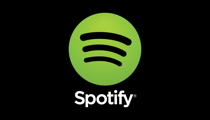This website uses cookies so that we can provide you with the best user experience possible. Cookie information is stored in your browser and performs functions such as recognising you when you return to our website and helping our team to understand which sections of the website you find most interesting and useful.
Business News Digital Labels & Publishers Legal
As ‘breakage’ debate continues, could things go legal?
By Chris Cooke | Published on Monday 1 June 2015

Various legal sources have told Digital Music News in the US that there could as yet be legal action over what happens to the big advances paid by the streaming platforms to the majors, such as those outlined in that old Sony/Spotify contract that leaked last month.
While, as previously noted, there was little in the leaked Sony contract that we didn’t already know about the way deals between the majors and the big streaming start-ups are structured (except, perhaps, for the specific numbers), the leak reignited the debate around what happens to unallocated advances, which everyone in the industry insists on continuing to call ‘breakage’, because why use a self-explanatory term when you can use a redundant word from the old record industry?
Basically, the big rights owners get big upfront cash advances, which are recoupable for the streaming services but non-fundable. So any royalties owed to the label as tracks are streamed are deducted from the advance, but if at the end of the year the advance exceeds what the digital platform actually owed the label overall for content used, the record company keeps the difference. But what does the record company do with the difference? Does it share it with its artists pro-rata, or does it just pocket the extra cash?
Many artists and managers suspect that it’s the record companies that mainly benefit from the advances, though after the Spotify contract leaked Sony quickly issued a statement saying that it had historically “shared digital breakage with its artists, and voluntarily credits breakage from all digital services to artist accounts”. Warner, meanwhile, has long claimed to share breakage income with artists, and last week Music Business Worldwide published a royalties statement from the record company that seemed to prove that was the case.
Still, DMN’s sources say resentment remains in the artist and management community, because despite reassurances from two of the three majors, and the listing of breakage income on some royalty statements, the big record companies remain generally unhelpful in explaining to their artists – and those artists’ managers and accountants – exactly how digital income is processed before splits are paid to talent under contract.
When it comes to labels sharing advances and other digital kickbacks with talent, it’s debatable whether the average record contract would actually empower artists to force a better cut of the action through the courts. Though lawyers speaking to DMN said that the next round of artist royalty lawsuits in the US could focus on this area anyway, because “that may be the only way we can get [the lack of transparency] to change”.
Meanwhile, some lawyers we’ve spoken too remain hopeful the previously reported litigation between Sony Music and 19 Entertainment over various ‘American Idol’ finalist contracts could be that clarity-delivering case, if it ever gets to court.
For their part, the recently formed International Artist Organisation is pushing for a less messy solution, by urging the record companies to agree a code of practise on artist contracts and the way royalties are paid. In their previously reported open letter, the IAO said: “[We call] on the labels to come to the table to develop a code of practise, with strict penalties for transgressors, that should govern all contracts between artists and record labels and which should provide a framework to better align their interests and foster relationships of partnership”.





